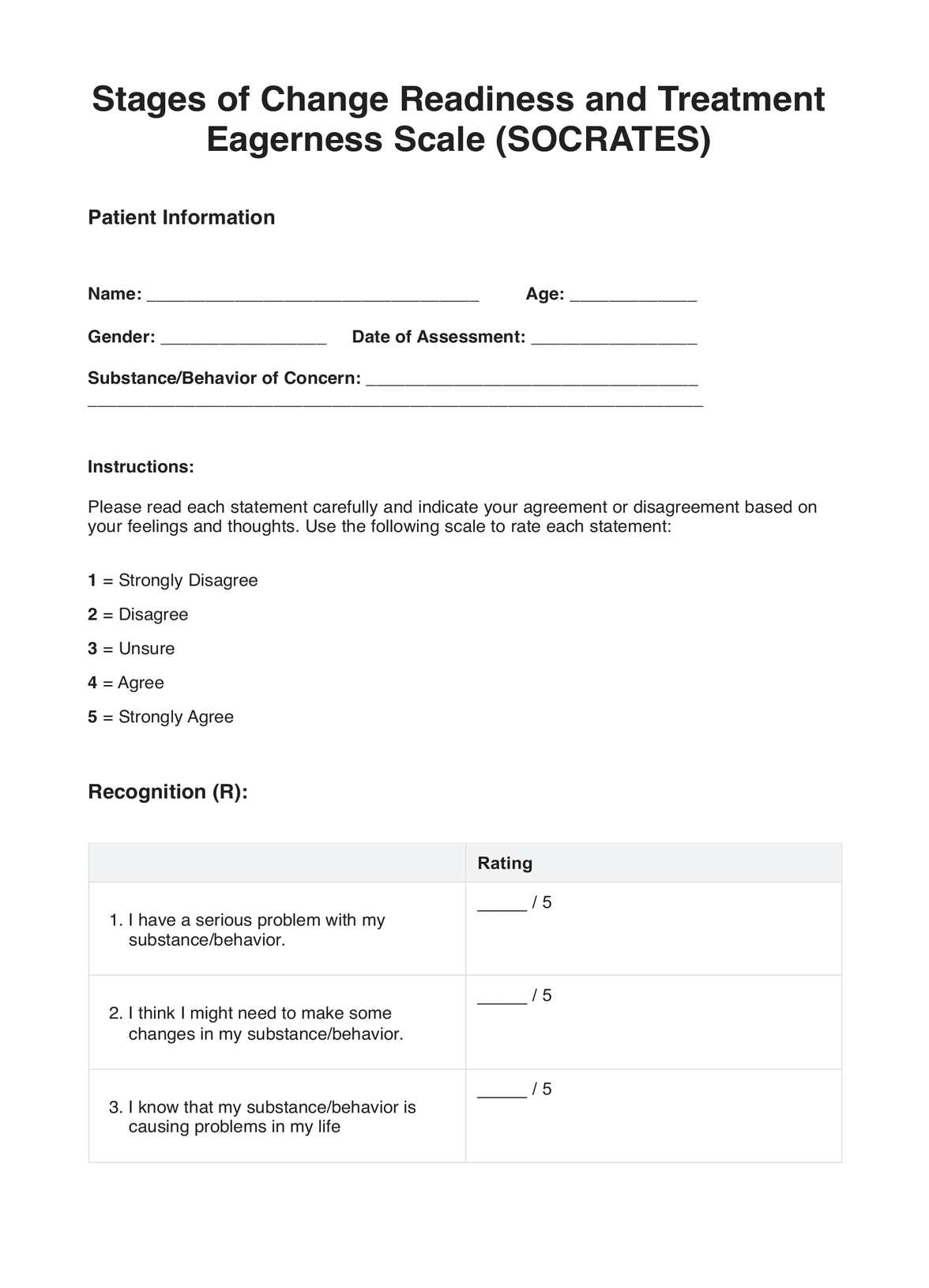Completing the SOCRATES questionnaire usually takes around 10-15 minutes. It consists of statements to which you respond based on your feelings and perceptions.

Stages of Change Readiness and Treatment Eagerness Scale (SOCRATES)
Use the Stages of Change Readiness and Treatment Eagerness Scale (SOCRATES) to evaluate readiness for change and customize interventions accordingly.
Stages of Change Readiness and Treatment Eagerness Scale (SOCRATES) Template
Commonly asked questions
The SOCRATES questionnaire yields scores in three subscales: Recognition, Ambivalence, and Taking Steps. Higher scores in each subscale indicate greater readiness for change in that specific area. The recognition acknowledges the need for change, Ambivalence gauges mixed feelings, and Taking Steps measures confidence in making changes.
SOCRATES is used in various stages of addiction treatment and counseling. It is administered during initial assessments, treatment planning, progress monitoring, and transition points in treatment to assess an individual's readiness for change.
EHR and practice management software
Get started for free
*No credit card required
Free
$0/usd
Unlimited clients
Telehealth
1GB of storage
Client portal text
Automated billing and online payments











